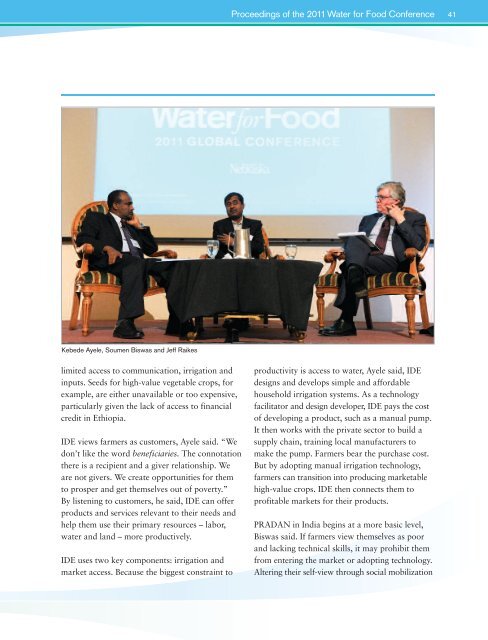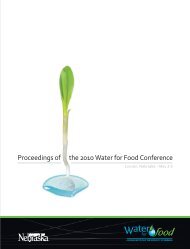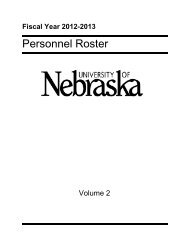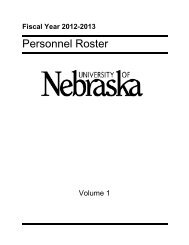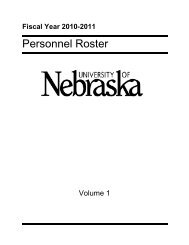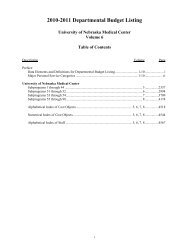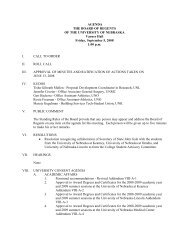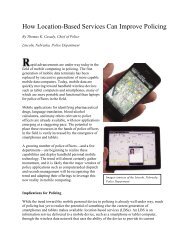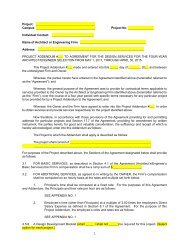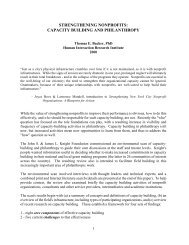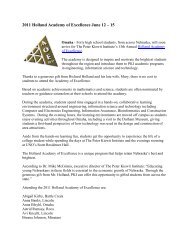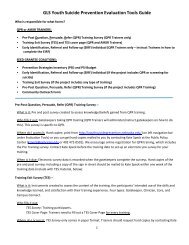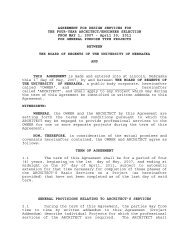Full Version - The Water for Food Institute - University of Nebraska
Full Version - The Water for Food Institute - University of Nebraska
Full Version - The Water for Food Institute - University of Nebraska
You also want an ePaper? Increase the reach of your titles
YUMPU automatically turns print PDFs into web optimized ePapers that Google loves.
Kebede Ayele, Soumen Biswas and Jeff Raikes<br />
limited access to communication, irrigation and<br />
inputs. Seeds <strong>for</strong> high-value vegetable crops, <strong>for</strong><br />
example, are either unavailable or too expensive,<br />
particularly given the lack <strong>of</strong> access to financial<br />
credit in Ethiopia.<br />
IDE views farmers as customers, Ayele said. “We<br />
don’t like the word beneficiaries. <strong>The</strong> connotation<br />
there is a recipient and a giver relationship. We<br />
are not givers. We create opportunities <strong>for</strong> them<br />
to prosper and get themselves out <strong>of</strong> poverty.”<br />
By listening to customers, he said, IDE can <strong>of</strong>fer<br />
products and services relevant to their needs and<br />
help them use their primary resources – labor,<br />
water and land – more productively.<br />
IDE uses two key components: irrigation and<br />
market access. Because the biggest constraint to<br />
Proceedings <strong>of</strong> the 2011 <strong>Water</strong> <strong>for</strong> <strong>Food</strong> Conference 41<br />
productivity is access to water, Ayele said, IDE<br />
designs and develops simple and af<strong>for</strong>dable<br />
household irrigation systems. As a technology<br />
facilitator and design developer, IDE pays the cost<br />
<strong>of</strong> developing a product, such as a manual pump.<br />
It then works with the private sector to build a<br />
supply chain, training local manufacturers to<br />
make the pump. Farmers bear the purchase cost.<br />
But by adopting manual irrigation technology,<br />
farmers can transition into producing marketable<br />
high-value crops. IDE then connects them to<br />
pr<strong>of</strong>itable markets <strong>for</strong> their products.<br />
PRADAN in India begins at a more basic level,<br />
Biswas said. If farmers view themselves as poor<br />
and lacking technical skills, it may prohibit them<br />
from entering the market or adopting technology.<br />
Altering their self-view through social mobilization


